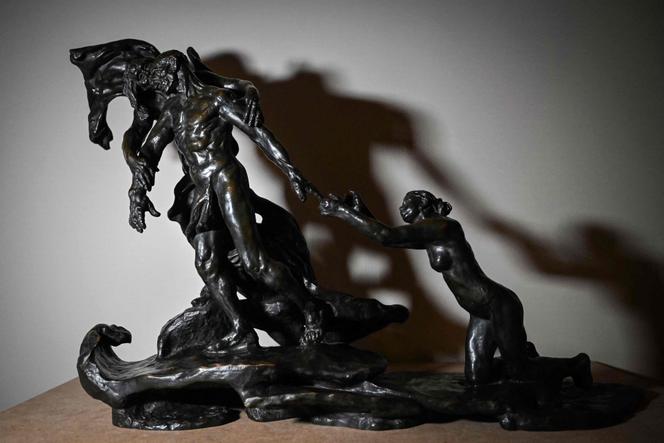


A bronze by French sculptor Camille Claudel, thought to evoke her separation with fellow artist and lover Auguste Rodin, was auctioned off in France on Sunday, February 16, for more than $3 million.
Claudel, whose life and troubled love affair with Rodin has inspired several films, destroyed much of her work before her brother confined her to a psychiatric hospital in 1913.
The artist sculpted "The Mature Age" after she broke up with Rodin, who was two decades older than her, seeking to create a name for herself in her own right after years spent as his assistant.
The sculpture, which exists in several copies, depicts an elderly woman dragging an aging man away, while a young woman, on her knees, implores him. Art historians have seen "The Implorer" as a representation of Claudel, devastated as Rodin is torn away from her.
Two other versions of "The Mature Age" are on display at the Musée d'Orsay in Paris and the Camille Claudel Museum, located outside the capital.
Auctioneer Matthieu Semont told Agence-France Presse (AFP) that he discovered the latest copy by chance in September, by lifting up a dust sheet in a flat near the Eiffel Tower that had been abandoned for around 15 years. He did not say to whom it belonged.
The bronze he found sold for €3.1 million ($3.2 million) at an auction house in the city of Orleans, south of Paris, an AFP reporter there said. It had been estimated at €1.5 million to €2 million.
A trove of sculptures by Claudel broke records at auction in Paris in 2017, going for $4.1 million – three times their estimate. The star of the auction, a bronze called "The Abandonment," went for nearly $1.4 million.
With comparatively few of her works surviving, the first version of her sweeping bronze "The Waltz" sold for $8 million in 2013.
Claudel became a feminist icon as her reputation was revived, particularly after an eponymous French biopic with Isabelle Adjani playing her, opposite Gérard Depardieu's Rodin, was nominated for two Oscars in 1989. Actress Juliette Binoche also played her in a 2013 film about her abandonment in the asylum.
Despite pleas by doctors and friends that she was sane and did not need to be in hospital, Claudel remained confined to the asylum on her family's orders until her death, aged 78, in 1943.
Semont said that, from his research into Claudel's life, it seemed Rodin had "never stopped loving her, and cried when he discovered 'The Implorer' at the foundry."
Feminist critics have never forgiven Rodin for his treatment of Claudel, who contributed to some of his most acclaimed works and who many have argued was artistically his equal.
